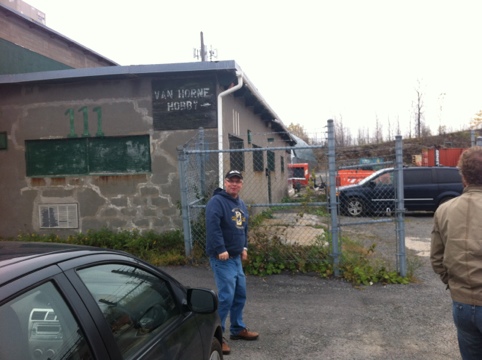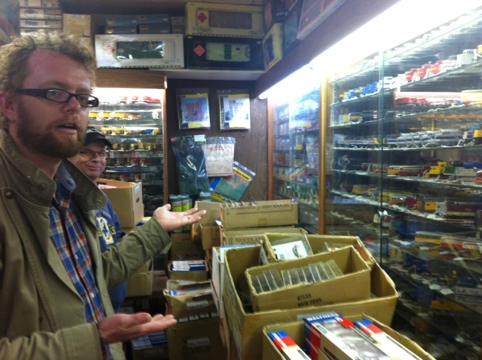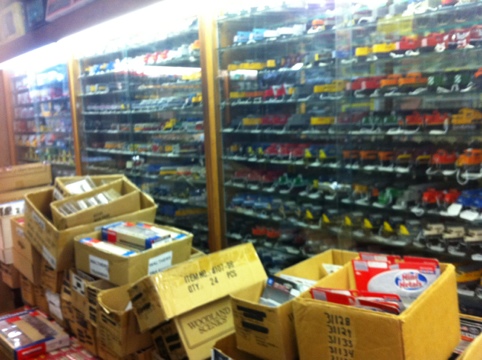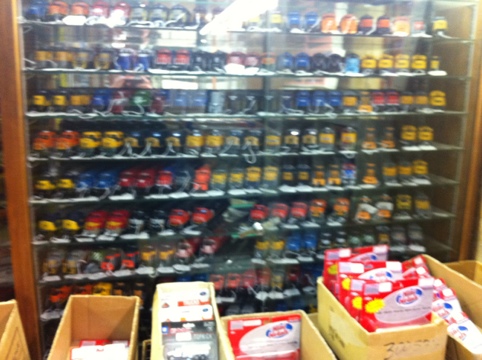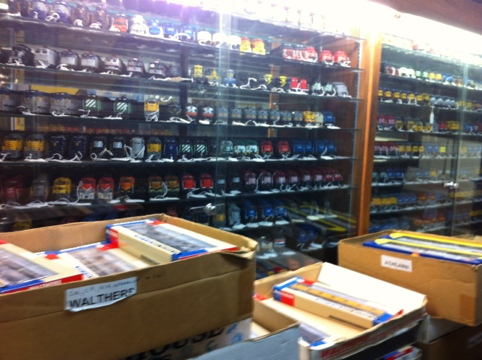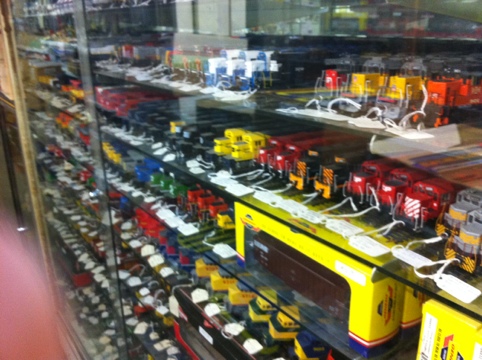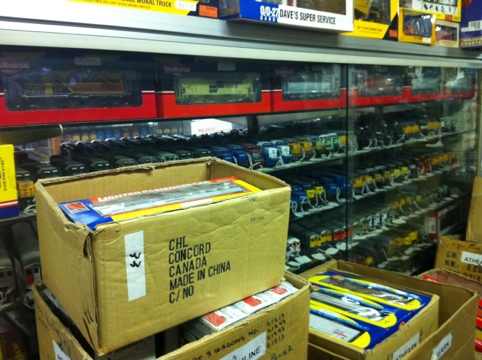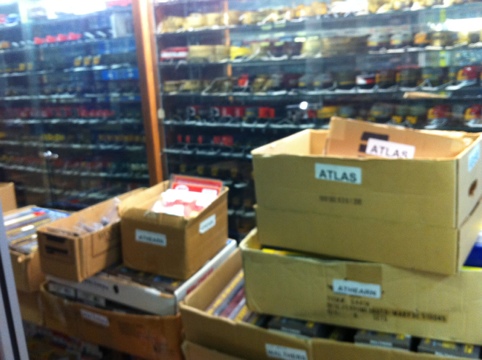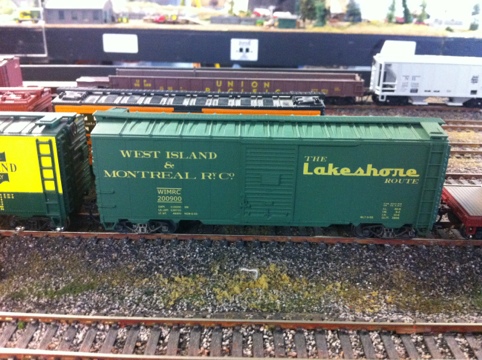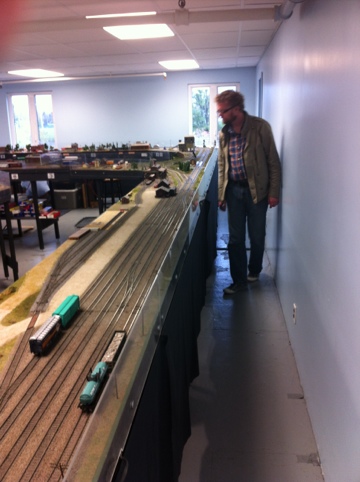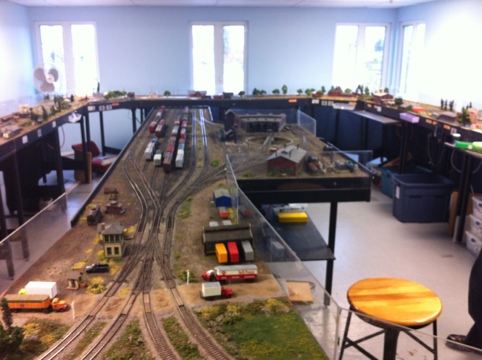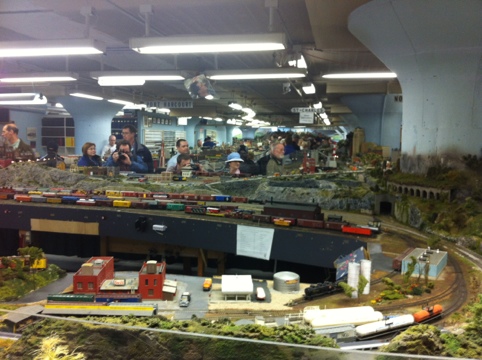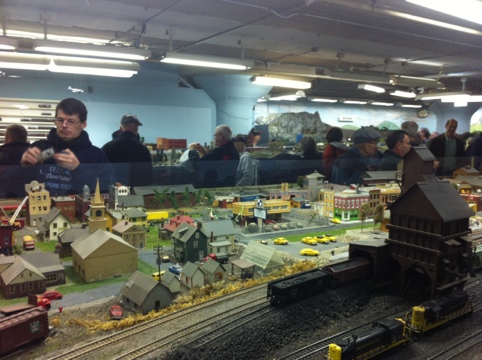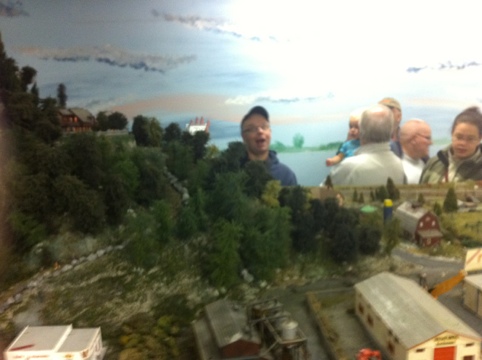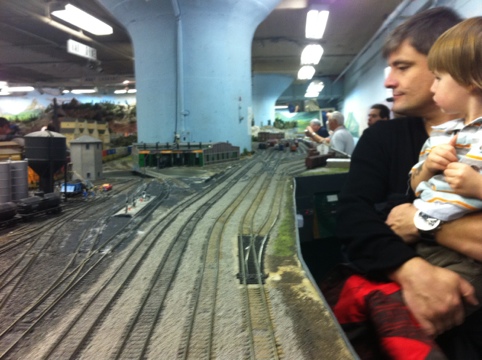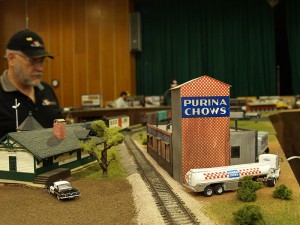Don’t think this will be a trend – two posts in as many days. I just had to tell you about my new throttle!
A few weeks back I read about new throttle software for use with the JMRI suite called “WiThottle”. The software runs on an iPod Touch or iPhone. I’ve been itching to get an iPod Touch for a while and this was just the thing to seal the deal.
The “Wi” part of the name means WiFi. This software connects to a host computer running DecoderPro and the WiThrottle server using a wireless network router. If you’ve already got a wireless router in your house it’s amazingly easy to set up. Oh yes, you also have to have a computer interface to your DCC system.
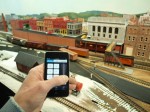 I thought the “throttle” would be difficult to use since there is nothing tactile about it – no knob to turn or button to press. It is a little different, but quite easy to get used to. I have mine set up with the speed slider on the right of the screen which is a more comfortable location for me. It can be set up so that the slider is on the left of the screen.
I thought the “throttle” would be difficult to use since there is nothing tactile about it – no knob to turn or button to press. It is a little different, but quite easy to get used to. I have mine set up with the speed slider on the right of the screen which is a more comfortable location for me. It can be set up so that the slider is on the left of the screen.
Instead of tactile responses like a knob or button there are audible clicks as the slider is moved up or down. This gives a good indication that you are moving the slider. No clicks means something is wrong.
The function controls are the white squares to the left of the speed slider. All 28 functions are easily selectable from the throttle. Direction “buttons” are located at the top of the screen.
To move a locomotive you just tap the direction button and slide your thumb up the screen over the slider. It is a little touchy (small movements result in large speed changes) even with the sensitivity at the lowest setting. Hopefully there will be an update soon that will address this. It takes a little time to get used to how much movement of the slider is required to move a locomotive.
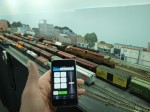 The throttle also features a yard mode. The idle position is in the center of the slider. You slide up for forward and down for reverse. It does make yard operations a lot easier when you don’t have to continually hunt for the direction buttons. This throttle configuration does take some getting used to. You have to lift your thumb off the slider before you can change direction.
The throttle also features a yard mode. The idle position is in the center of the slider. You slide up for forward and down for reverse. It does make yard operations a lot easier when you don’t have to continually hunt for the direction buttons. This throttle configuration does take some getting used to. You have to lift your thumb off the slider before you can change direction.
Using it at Derwin’s this evening brought up a few issues. I had to be careful lifting my thumb off the slider after bringing the speed slider to idle (center) or the throttle would click and the loco would start moving slowly. I also had some trouble getting the loco to change direction on a few occasions. I’m sure these issues will be fixed in future updates.
The best thing about this throttle is that it can be used with any DCC system as long as it has a computer interface, JMRI software running, and a wireless network. There are no compatibility issues between NCE, Digitrax, or Lenz
Later!
Scott

